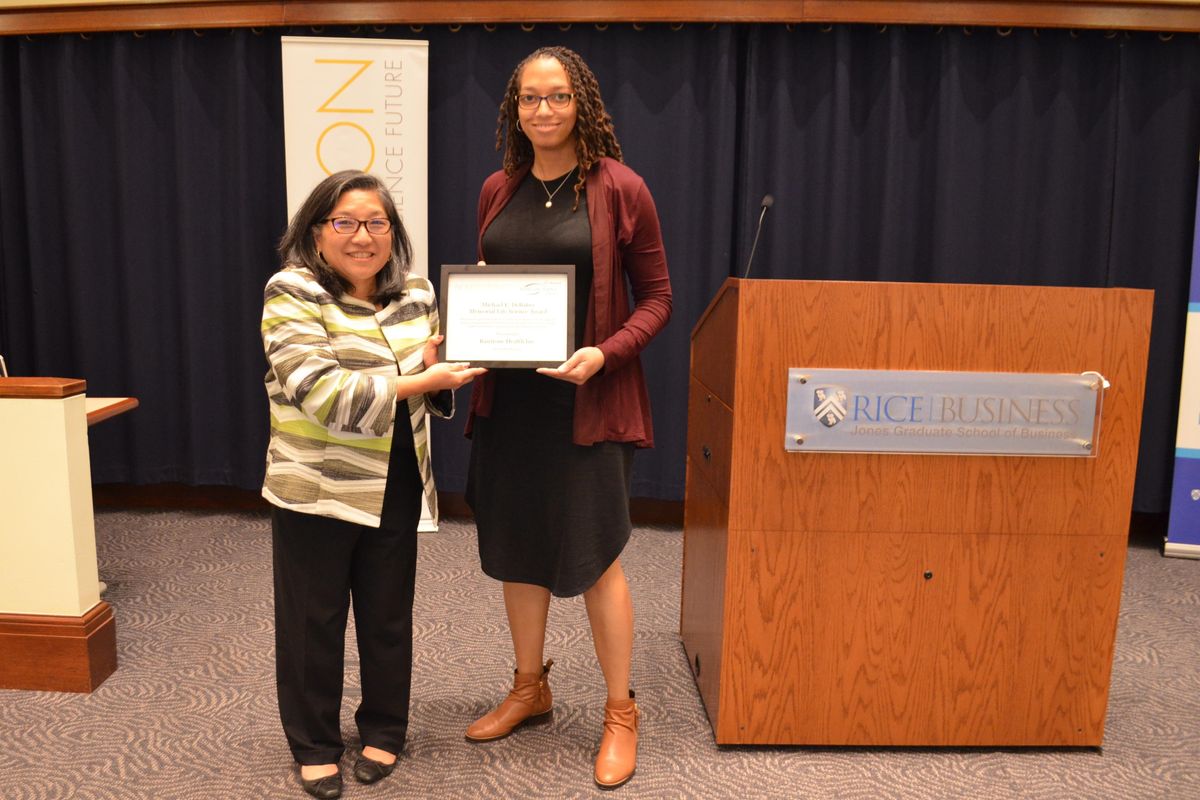Houston startups named most promising in the life science space at annual event
ones to watch
For the second time this year, Houston life science leaders and startup founders gathered to discuss the future of health care in Houston.
The annual Texas Life Science Forum hosted by BioHouston and the Rice Alliance for Technology and Entrepreneurship was usually held during the fall before the pandemic pushed it off schedule. In February, the two organizations hosted the previous forum, but as of this month, the annual event is back on track.
The day included panels and networking, plus over 50 companies — about half of which are based in Houston — pitched their solutions across medical device, therapeutics, pharmaceuticals, and more to the crowd.
Houston-based Bairitone Health won the Michael E. DeBakey Memorial Life Science Award, established by BioHouston in honor of the groundbreaking Houston cardiovascular surgeon. The company is creating a wearable technology that takes a more innovative approach to sleep apnea and snoring with its SOMNAR platform that detects tissue-born sounds, identifies obstructions, and more. The award was presented by Ann Tanabe, CEO of BioHouston.

For the first time, the event also named a people's choice award winner, as voted on by the audience members. Baritone Health also claimed the prize.
At the conclusion of the event, the Rice Alliance and BioHouston named the 10 most promising life science companies selected by investors and presented by the Greater Houston Partnership. This year's selection included the following companies, in alphabetical order.
Autonomize
Austin-based Autonomize unlocks data and context to enable human health outcomes
bEHR Health Systems
New Orleans-based bEHR Health Systems delivers, medical, lifestyle, and social solutions to health for African Americans.
EMPIRI
EMPIRI, based in Houston, is revolutionizing cancer care with a novel technology that accurately predicts each cancer patient's treatment responses empirically, enabling doctors to make the optimal treatment selection for each cancer patient.
InformAI
Houston-based InformAI develops AI-based medical image diagnostic tools and uses large dataset synthesis to develop clinical outcome predictors for physicians, hospitals, and medical imaging/medical device companies
March Biosciences
Houston-based March Biosciences is impacting the most challenging lymphoma and leukemia.
MRG Health-SmartCare360
MRG Health-SmartCare360, based in Houston, is a determinate of health and disease specific virtual care management technology and services company that improves patient access to care and clinical outcomes for people suffering from one or more chronic disease.
Prana Thoracic
Prana Thoracic, founded in Houston out of JLABS at TMC, is a medical device startup that's innovating for the future of early intervention in lung cancer.
Steradian Technologies
Another med device startup based in Houston, Steradian Technologies employs deep-photonics technology to diagnose respiratory diseases in seconds, all for the price of a latte.
TYBR Health
Houston-based TYBR Health makes a hydrogel that protects tendons from scarring after surgery and improves patient outcomes.
Voythos
Voythos, based in Houston, is making medical records work for today's healthcare.
